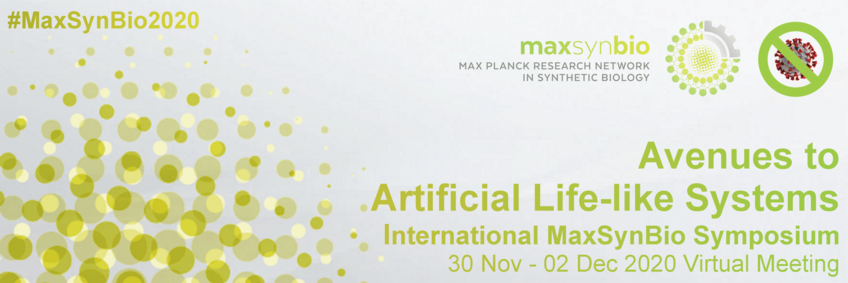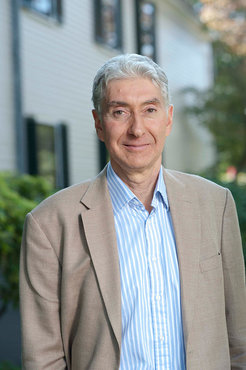
Stephen Mann
Max Planck Bristol Centre for Minimal Biology / University of Bristol, United Kingdom
Guest Speaker

Stephen Mann is Professor of Chemistry, Co-Director of the Max Planck Bristol Centre for Minimal Biology, Director of the Centre for Organized Matter Chemistry and Director of the Centre for Protolife Research at the University of Bristol, UK. He is a founder of biomimetic materials chemistry and is distinguished for contributions to biomineralization and for pioneering the bioinspired synthesis and self-assembly of functional nanostructures and hybrid nanoscale objects. His current work is focused on the design and construction of synthetic protocells
University of Bristol, United Kingdom
Keynote Presentation: Programmable behaviour in synthetic protobiology
Session "Compartments" | Monday 30 Nov, 19:00 - 19:30 CET
Abstract: Recent progress in the chemical construction of micro-compartmentalized semipermeable colloidal objects comprising integrated biomimetic functions is paving the way towards rudimentary forms of artificial cell-like entities (protocells) for modelling complex biological systems, exploring the origin of life, and advancing future proto-living technologies. Although several new types of protocells are currently available, the design of synthetic protocell communities and investigation of their collective properties has received little attention.
In this talk, I review some recent experiments undertaken in my laboratory that demonstrate simple forms of programmable behaviour in synthetic protocells. Four new areas are currently under investigation: (i) enzyme-powered motility and oscillation in sensory protocells,1 (ii) DNA-based signal processing in synthetic protocell communication networks,2 (iii) coordinated assembly of beating prototissues3, and (iv) sociability and antagonism in synthetic protocell communities.4,5,6 I will use these new model systems to discuss programmable pathways towards chemical cognition, distributed computation, collective chemomechanical dynamics, artificial predatory and endosymbiosis in compartmentalized artificial life-like micro-ensembles.
References:
[1] Kumar P B V V S, Patil A J and Mann S. Enzyme-powered motility in buoyant organoclay/DNA protocells. Nature Chemistry 10, 1154-1163 (2018).
[2] Joesaar A, et al; DNA-based communication in populations of synthetic protocells. Nature Nanotechnology 14, 369-378 (2019).
[3] Gobbo P, Patil A J, Li M and Mann S. Programmed assembly of synthetic protocells into contractile prototissues. Nature Materials, 17, 1145-1153 (2018).
[4] Qiao Y, Li M, Booth R and Mann S. Predatory behaviour in synthetic protocell communities. Nature Chemistry 9,110–119 (2017).
[5] Qiao Y, Li M, Qiu D and Mann S. Response-retaliation behaviour in synthetic protocell communities. Angew. Chem. Int. Ed. 58, 17758-17763 (2019).
[6] Martin N, Douliez J-P, Qiao Y, Booth R, Li M and Mann S. Antagonistic chemical coupling in self-reconfigurable host-guest protocells. Nature Communications 9, 3652 (2018).
